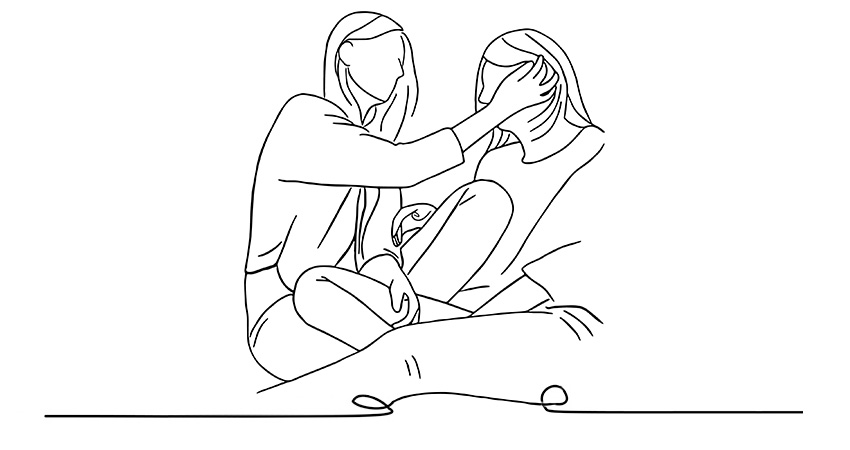
The SAAIL project: Co-producing Intimacy Toolkits with Autistic Adults – The workshops
Authors: Bethany Jay & Dr. Monique Huysamen
Supporting Autistic Adults’ Intimate Lives (SAAIL) is a participatory research project exploring how autistic people think adult social care in England can better recognise and support their intimate lives. This phase of the project involved running stakeholder co-production workshops as they can be an exciting and effective way to engage relevant individuals in the research findings.
In this blog, we will be outlining each workshop, where the main aim was to produce our Autism and Intimacy toolkits.
Workshop 1: Using Padlet pinboards
One of our aims was to engage participants with our interview and focus group data and get them involved in data analysis. One of the key tools used to do this was Padlet pinboards (https://padlet.com/), a well-known online software that creates digital pinboards.
In their initial suggestions, participants proposed that we created a live document, alongside running co-production workshops to effectively create a continuous space for toolkit commentary, regardless of workshop attendance – the pinboards fulfilled this function perfectly.
Before the workshops, we created pinboards for 4 of the main broad themes to emerge from our data:
- Communication and Consent
- Managing Rejection
- Being Autistic and Queer
- Putting Intimate Lives on the Support Menu
We posted relevant quotes from each theme, as well as some other relevant links. Participants were encouraged to provide their input on the data, and we made the pinboards available to all invited stakeholders a month before the workshops were held, during the workshops, and for a month after they finished.
This meant that stakeholders were able to continually consider and feedback on the potential toolkit topics. This was pivotal and a real success as participants were continuously co-producing the toolkits with us, beyond the scheduled workshops and beyond our expectations.
Participants were split into small breakout rooms, they took turns to discuss each pinboard, the content and underlying themes on each pinboard, and how this information should be used to develop the toolkit topics.
Facilitators also used the pinboards to observe these workshop discussions, making notes throughout the workshop. These were then presented back to the whole group at the end of the day and made for a lively and important discussion.
Workshop 2: Toolkits beyond SAAIL findings
We did not design workshop 2 until after workshop 1, as it was our ambition that the second workshop emerged out of the findings from the first workshop, and most importantly from workshop participants’ priorities. We changed the format of workshop 2, with no breakout rooms.
In addition to the important work around analysing the SAAIL data, and producing toolkits in relation to the data, participants raised very important topics for the toolkits that were not part of the SAAIL findings. For this reason, workshop 2 was driven by expertise from outside of the project, with workshop presentations led by experts who attended workshop 1.
The presentations were led by three different stakeholders:
- Amy Pearson: Comforting, reassuring, and…hot”: a qualitative exploration of engaging in BDSM and kink from the perspective of autistic adults
- Professor Claire De Than: Mythbusting and call for reform
- Jenny Sanders: Autistic individuals’ sexual experiences
Presentations were followed by group discussions, further developing the network, and enriching co-production and toolkit content. For instance, stakeholders in attendance highlighted the importance of using accessible and inclusive language, and in response, they created a comprehensive glossary of terms.
If it wasn’t for coproduction before, during, and after the workshops, our toolkits would be missing extremely important toolkits and resources, such as the toolkit: Symptomatic Hypermobility, Ehlers-Danlos Syndromes and Hypermobility Spectrum Disorders, the toolkit: Exploring BDSM and Kink, and the resource: Cedric’s Collaborative Glossary.
You can find our toolkits here. We are always on the lookout for useful resources and information, helping us further build informative and helpful intimacy toolkits, so please do get in touch if you can help (b.jay@mmu.ac.uk).
SAAIL was funded by the National Institute for Health and Care Research School for Social Care Research (NIHR SSCR). The views expressed are those of the authors and not necessarily those of the NIHR SSCR, NIHR or Department of Health and Social Care.






0 Comments